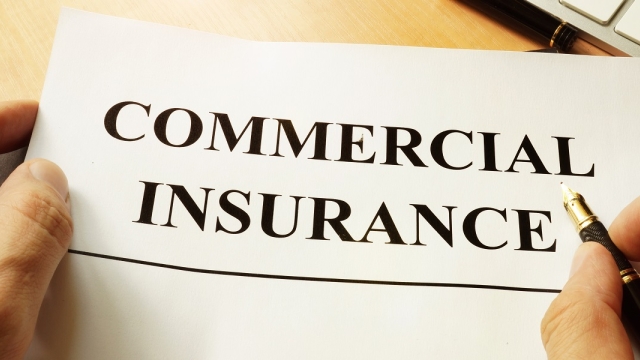Running a successful business is no easy feat. Entrepreneurs face numerous challenges, from managing daily operations to building a strong team. Amidst this hustle and bustle, it’s crucial not to overlook the importance of safeguarding your business. In this article, we will explore three essential types of insurance that every business owner should consider: Workers Compensation Insurance, Business Insurance, and Directors and Officers (D&O) Insurance. Understanding these insurance policies and their role in protecting your business is the first step towards mitigating risks and ensuring long-term success. So, let’s dive in and explore the ABCs of Workers Compensation, Business, and D&O Insurance.
Understanding Workers Compensation Insurance
Workers Compensation Insurance is a vital protection for both employers and employees. It is a type of insurance coverage that provides benefits to workers who have been injured or become ill due to job-related activities. In exchange for this coverage, employees relinquish their right to sue their employer for negligence.
This insurance ensures that employees receive compensation for medical expenses, lost wages, rehabilitation costs, and other related expenses resulting from a work-related injury or illness. It also provides benefits to the dependents of workers who have lost their lives on the job.
Workers Compensation Insurance helps employers by shielding them from potential lawsuits and legal disputes arising from workplace injuries or illnesses. It serves as a safety net for businesses, ensuring that they can fulfill their obligations to injured employees while minimizing financial strain.
It is important for businesses to understand the specific requirements and regulations surrounding Workers Compensation Insurance in their jurisdiction. Compliance with these regulations is crucial to avoid penalties and legal consequences. By prioritizing the safety and well-being of employees, businesses can create a secure and productive work environment.
Importance of Business Insurance
Running a business comes with a multitude of risks that cannot be overlooked. One of the most crucial aspects of safeguarding your business is having the right insurance coverage. Business insurance serves as a protective shield, ensuring that your company can withstand unforeseen challenges and setbacks.
Having comprehensive business insurance provides peace of mind, knowing that your assets and investments are shielded from potential threats. Whether it is property damage, liability claims, or even cyber-attacks, the right insurance coverage can mitigate the financial burden that can otherwise cripple your business.
Moreover, business insurance also plays a pivotal role in ensuring business continuity during uncertain times. Disasters, natural or man-made, can strike at any moment, disrupting your operations. However, with the appropriate insurance coverage, you can quickly bounce back and minimize the impact on your business, safeguarding your employees and customers.
Furthermore, having business insurance is often a requirement by law or by potential business partners. Clients and investors often look for proof of insurance coverage before engaging in any business transactions. Thus, by having the right insurance policies in place, you not only fulfill legal obligations but also enhance your credibility and reputation in the market.
In conclusion, business insurance is not just an option but a necessity for every business. It acts as a safety net, providing financial protection and ensuring business continuity in the face of unexpected events. By securing the right insurance coverage, you can focus on growing your business and pursuing your goals, knowing that you are safeguarded against potential risks and uncertainties.
Nail salon insurance california
Navigating D&O Insurance
Directors and Officers (D&O) insurance is a vital component of safeguarding your business against a variety of risks. This type of insurance offers protection to company directors and officers in case they face legal action personally. It provides coverage for legal expenses, settlements, and judgments that may arise due to their decisions or actions while performing their corporate duties.
D&O insurance policies are designed to cover claims stemming from various circumstances. These can include allegations of mismanagement, negligence, breach of fiduciary duty, or even wrongful acts committed by executives, directors, or officers. Typically, D&O insurance comes in three distinct coverage categories, namely Side A, Side B, and Side C.
Side A coverage provides protection directly to directors and officers by reimbursing them for personal financial losses that their companies may not be able to cover. This is particularly important because allegations and lawsuits can result in significant individual liability. Side B coverage, on the other hand, applies to the company itself when it indemnifies its directors and officers for legal expenses and liabilities. Lastly, Side C coverage protects the business entity by covering claims made against the company as a whole, such as securities claims or allegations of fraudulent activities.

When considering D&O insurance, it is crucial that businesses carefully assess their unique needs and risks. Evaluating the specific exposures that directors and officers may encounter will help guide the selection of an appropriate policy. Engaging with a knowledgeable insurance broker or consultant can provide valuable insights into the types of coverage available and what is best suited for your organization.
By understanding the intricacies of D&O insurance and its various coverage options, businesses can ensure they are adequately protected against potential financial and reputational risks. Remember, D&O insurance serves as a critical tool for safeguarding your company’s leadership, preserving shareholder trust, and navigating the ever-evolving landscape of corporate liability.
